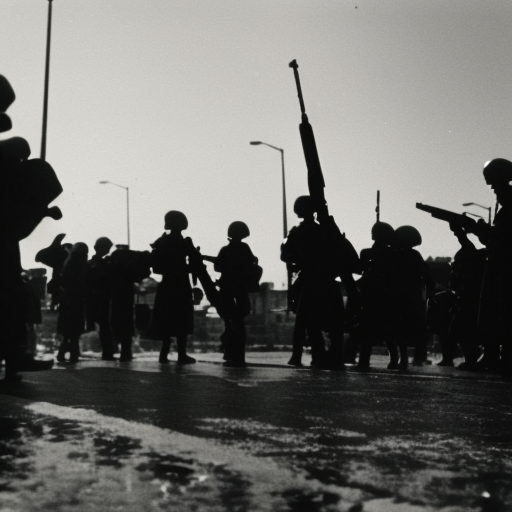Rif War: A Struggle for Independence
The Rif War, also known as the Second Moroccan War, was a conflict that took place from 1920 to 1927 between the Spanish Empire and the Rif tribes of northern Morocco. The war was a result of the Rifian resistance against Spanish colonial rule and their fight for independence. It was a significant event in the history of both Spain and Morocco, with far-reaching consequences for both nations.
Background:
The Rif region, located in the northern part of Morocco, had a long history of resistance against foreign powers. The Rif tribes, led by the charismatic leader Abd el-Krim, had successfully resisted Spanish attempts to control the region in the early 20th century. However, in 1920, Spain launched a major military campaign to assert its control over the Rif.
The Spanish Offensive:
The Spanish offensive began in 1920 with the aim of subduing the Rif tribes and establishing Spanish control over the region. The Spanish forces, equipped with modern weapons and superior firepower, initially made significant progress. They captured several key cities and pushed deeper into the Rif territory. However, the Rifian resistance, led by Abd el-Krim, proved to be formidable.
The Battle of Annual:
One of the most significant events of the Rif War was the Battle of Annual in 1921. The Spanish forces, underestimating the strength of the Rifian resistance, suffered a devastating defeat. The battle resulted in the annihilation of a large portion of the Spanish army, with thousands of soldiers killed or captured. The defeat at Annual shocked Spain and led to a major crisis in the Spanish government.
International Involvement:
The Rif War attracted international attention and involvement. France, Morocco’s colonial power, supported Spain in its efforts to suppress the Rifian resistance. France feared that the Rifian success could inspire similar movements in its own colonies. On the other hand, the Rifian cause received support from various quarters, including the Soviet Union and some Arab countries.
Spanish Reinforcements and Chemical Warfare:
After the defeat at Annual, Spain sent reinforcements to the Rif to regain control. The Spanish forces, now better prepared, launched a series of offensives against the Rifian resistance. In their efforts to overcome the Rifian fortifications, the Spanish employed chemical weapons, including mustard gas. The use of chemical warfare by Spain drew international condemnation.
End of the War:
The Rif War continued for several more years, with both sides suffering heavy casualties. However, the Rifian resistance gradually weakened due to internal divisions and lack of external support. In 1926, Abd el-Krim surrendered to the French authorities, who then handed him over to the Spanish. The surrender marked the end of the Rif War and the loss of Rifian independence.
Consequences:
The Rif War had significant consequences for both Spain and Morocco. In Spain, the war led to political instability and a loss of confidence in the government. It also exposed the weaknesses of the Spanish military and contributed to the fall of the monarchy in 1931. In Morocco, the war had a lasting impact on the Rif region. The conflict and subsequent Spanish occupation resulted in widespread destruction and loss of life.
Legacy:
The Rif War is remembered as a symbol of resistance against colonialism and foreign domination. It remains an important event in the history of both Spain and Morocco. The war also had broader implications, as it highlighted the brutality of colonial rule and the use of chemical weapons. The Rifian resistance and their leader, Abd el-Krim, are revered as national heroes in Morocco.
In conclusion, the Rif War was a significant conflict that took place between the Spanish Empire and the Rif tribes of northern Morocco. The war was a result of the Rifian resistance against Spanish colonial rule and their fight for independence. The Spanish offensive, the Battle of Annual, international involvement, the use of chemical warfare, and the eventual surrender of Abd el-Krim were key events in the war. The war had far-reaching consequences for both Spain and Morocco and is remembered as a symbol of resistance against colonialism.












